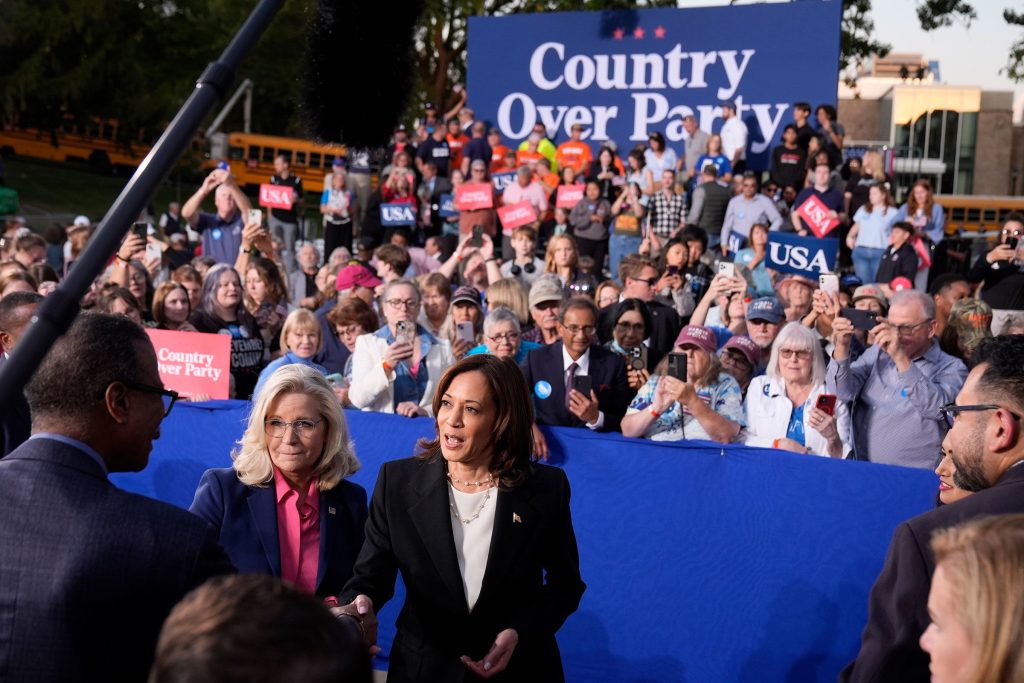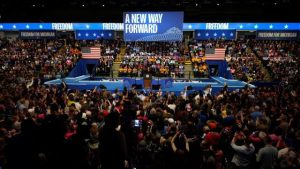
Vice President Kamala Harris is facing increasing scrutiny as her efforts to garner support from union voters show signs of faltering. Recent decisions by the Teamsters and the International Association of Fire Fighters (IAFF) to refrain from endorsing any presidential candidates have heightened concerns about her standing among organized labor.
Leaders from both unions cited internal disagreements as the primary reason for withholding endorsements. Edward Kelly, general president of the IAFF, emphasized the importance of unity within the organization, stating, “This decision, which we took very seriously, is the best way to preserve and strengthen our unity.”
The Trump campaign seized on these announcements, framing them as evidence of organized labor’s discontent with Harris and the Democratic Party. They described the firefighters’ decision not to endorse a 2024 candidate as “another blow” to her campaign, contrasting it with the union’s early endorsement of Joe Biden in the previous election cycle.
However, the situation is more complex. While Harris maintains a polling lead among union voters and households, that lead is not as robust as Joe Biden’s four years ago or even Hillary Clinton’s in 2016. Exit polls from CNN show Biden held a 16-point lead among union household voters in 2020, while Clinton had a 9-point lead in her loss. In contrast, a recent Fox News poll indicated Harris had a 6-point lead over Trump, with a Quinnipiac poll later showing her ahead by 11 points among the same demographic.
Amid these challenges, Harris has intensified her support for labor as the election approaches. Her recent visit to Michigan coincided with the resolution of a strike by U.S. dockworkers, which could have significantly disrupted the economy. She praised this development as a testament to the power of collective bargaining, stating, “This step indicates progress toward a strong contract and represents the power of collective bargaining.”
At a rally in Redford Township, near Detroit, Harris took aim at Trump’s labor record, asserting, “We will not be fooled,” and labeling the former president’s policies as “a disaster for working people.” She warned that Trump poses an “existential threat to America’s labor movement.”

Despite some high-profile setbacks, Harris has managed to keep a coalition of labor organizations largely aligned with the Democratic nominee. United Auto Workers (UAW) President Shawn Fain has emerged as a significant supporter, frequently criticizing Trump’s labor policies and warning that a second Trump administration would be detrimental to the labor movement. During a fiery convention speech, Fain referred to Trump as a “scab” and criticized both him and his ally, Ohio Senator J.D. Vance, as “lapdogs for the billionaire class.”
The UAW recently achieved substantial gains in wages and benefits following a strike that received support from various Democrats, including Biden, who famously visited a picket line in Michigan during the labor stoppage.
The AFL-CIO, a major federation of unions, endorsed Harris early in her campaign. In a statement, President Liz Shuler highlighted a robust jobs report and framed the election as a choice between Harris and Trump, emphasizing the latter’s potential to reverse labor gains.
Other labor leaders, however, are more cautious. Their reluctance to fully endorse either candidate reflects fears of jeopardizing their standing within their respective unions amidst a heated campaign. Both vice presidential candidates, Harris and Vance, spoke at the IAFF convention in Boston in late August, with Vance receiving a less enthusiastic reception than Harris.
In a notable turn, Teamsters President Sean O’Brien spoke at the Republican National Convention in July, a move that shocked many in the labor community. He acknowledged the Teamsters’ history of endorsing Republican candidates, from Nixon to Reagan, but his remarks at the RNC drew ire from union leaders who worried about the implications of Trump’s return to power.
O’Brien later stated that the Teamsters decided against endorsing a candidate due to their commitment to a democratic process, representing all members regardless of party affiliation. This approach has generated pushback from local Teamsters in battleground states who support Harris.
Larry Cohen, former president of the Communications Workers of America, downplayed the significance of the Teamsters’ decision, arguing that it was too late for them to mobilize effectively for the election. “What are you actually gonna do? How in 6 weeks are you going to train people and organize them?” he questioned.
Despite these tensions, some segments of the Teamsters, including their Black and West Coast caucuses, have expressed support for Harris, indicating that her backing among union members remains strong, regardless of national leadership decisions. As the election approaches, the dynamics within organized labor will be crucial for Harris as she seeks to solidify her support among this vital voting bloc.








